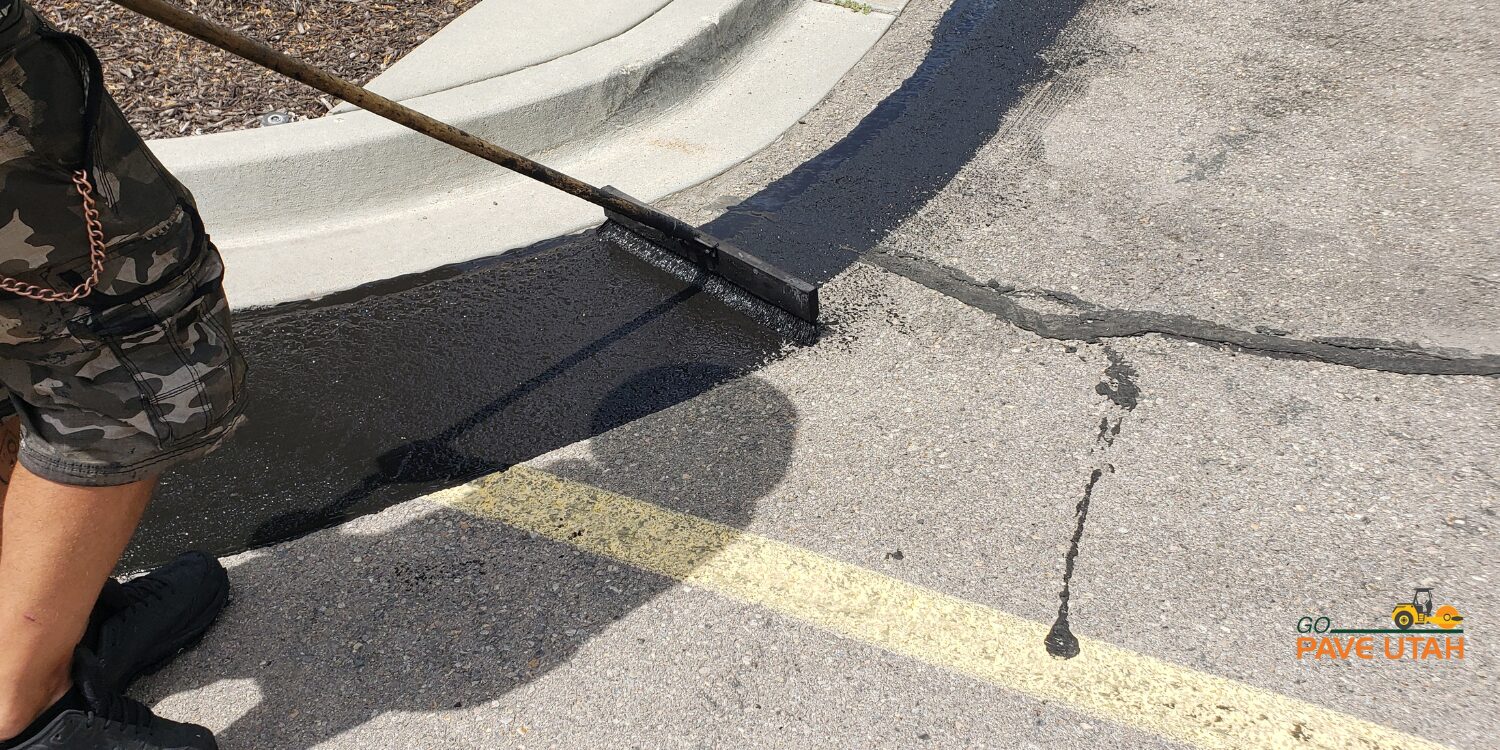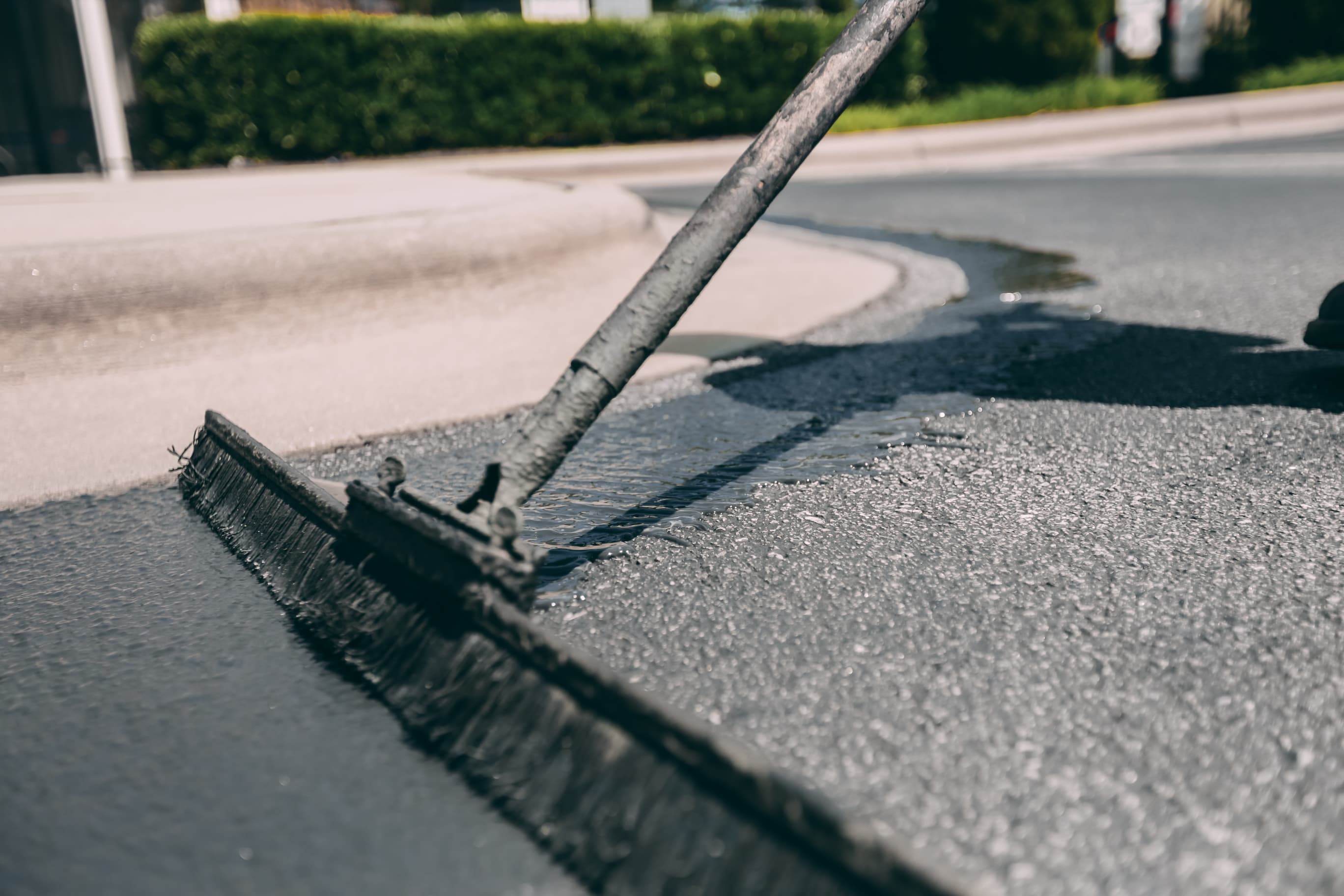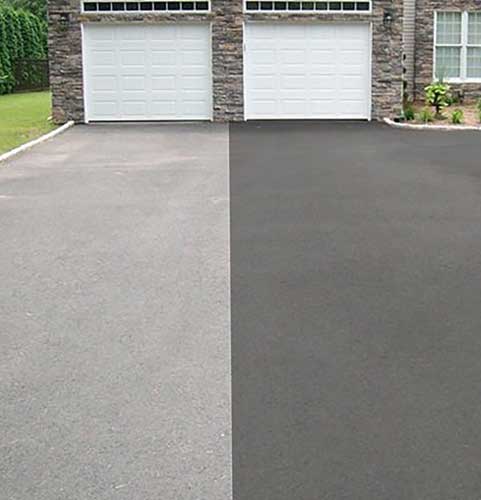Raise Safety And Security and Charm: Angled Parking Lot Solutions with Asphalt Sealing
Raise Safety And Security and Charm: Angled Parking Lot Solutions with Asphalt Sealing
Blog Article
Warm Mix Asphalt: A Lasting Solution for Sidewalk
Warm Mix Asphalt (HMA) has actually emerged as a leading lasting selection for pavement options, supplying a myriad of ecological benefits and cutting-edge innovations. As the need for eco-friendly construction practices expands, exploring the subtleties of HMA's sustainability can offer important understandings into the future of sidewalk services.
Ecological Benefits of Warm Mix Asphalt

Furthermore, Hot Mix Asphalt helps to alleviate urban warmth island impacts. Its dark shade absorbs sunshine, lowering the amount of heat showed back right into the environment compared to lighter-colored pavements. This can decrease ambient temperature levels in metropolitan locations, decreasing the demand for air conditioning and ultimately lowering energy intake.
Furthermore, Hot Mix Asphalt adds to boosted stormwater monitoring. Its porous nature allows water to recharge and penetrate the pavement groundwater materials, lowering runoff and the threat of flooding. These environmental advantages make Hot Mix Asphalt a lasting option for leading roadways and highways.
Power Efficiency in HMA Manufacturing
Is power performance an essential factor in the manufacturing of Hot Mix Asphalt (HMA)? Absolutely. Power plays a considerable function in the production of HMA, impacting both price and environmental sustainability. One essential aspect of energy effectiveness in HMA production is making use of cozy mix asphalt (WMA) technologies (regrading). WMA enables the blending and positioning of asphalt at reduced temperature levels contrasted to typical hot mix asphalt, causing minimized energy intake throughout production. This procedure not just decreases gas usage but also lowers greenhouse gas emissions, making it an extra environmentally pleasant alternative.
Moreover, developments in plant technologies have brought about more energy-efficient HMA manufacturing procedures. Modern plants are designed with features like recycled asphalt pavement (RAP) handling capacities, reliable heater systems, and boosted insulation, all adding to power savings. By enhancing power use in HMA production, the industry can minimize its carbon impact while maintaining high-quality pavement materials. Power efficiency is, as a result, an essential consideration in ensuring the sustainability of Warm Mix Asphalt manufacturing.
Recyclability of Hot Mix Asphalt
The recyclability of Hot Mix Asphalt (HMA) is a crucial element of its sustainability and long-lasting environmental impact. HMA is among the most recycled products in the United States, with over 100 million tons of reclaimed asphalt sidewalk (RAP) being reused each year in new sidewalk construction. Recycling HMA supplies several environmental advantages, such as decreasing the requirement for virgin products, reducing energy intake throughout production, and lowering the quantity of waste sent out to garbage dumps.
The procedure of recycling HMA involves milling the existing sidewalk, squashing it right into smaller sized pieces, and mixing it with new accumulation and asphalt binder to produce a recycled mix. This recycled mix can usually do as well as or perhaps better than conventional HMA, while needing fewer basic materials and generating reduced greenhouse gas exhausts. By integrating RAP into brand-new pavement projects, road agencies can preserve natural deposits, reduce expenses, and lessen the ecological impact of road building and upkeep tasks. In general, the recyclability of HMA plays a significant role in advertising sustainable techniques within the sidewalk market.

Long-Term Efficiency of HMA
Asphalt sidewalks demonstrate resilience and durability over a prolonged duration, showing the long-term efficiency of Warm Mix Asphalt (HMA) The long life of HMA can be credited to its capacity to hold up against rush hour lots, severe climate condition, and the impacts of aging. Studies have actually shown that well-designed and appropriately created HMA pavements can last for twenty years or more with regular upkeep. The key to making the most of the long-term efficiency of HMA hinges on making use of high-quality products, adhering to ideal practices in building, and carrying out reliable upkeep strategies. Correct water drainage, routine inspections, and prompt fixings are necessary for maintaining the visit here structural stability of HMA sidewalks over time. In addition, developments in HMA technology, such as using polymer-modified binders and warm mix asphalt, have actually even more improved the durability and durability of HMA sidewalks. read more By prioritizing high quality building and upkeep practices, HMA proceeds to confirm itself as a lasting and cost-efficient service for long-lasting sidewalk infrastructure.

HMA: Sturdiness and Sustainability
Showing both longevity and sustainability, Hot Mix Asphalt (HMA) has actually come to be a foundation in the building and construction of resilient pavement infrastructures - hot mix asphalt. HMA's longevity stems from its ability to hold up against heavy lots, severe climate condition, and high website traffic quantities, making it a reputable selection for roads, highways, and airport paths. The composition of HMA, which commonly consists of aggregates, binder, and filler, plays a critical function in improving its durability and resistance to tear and put on
In addition, HMA's sustainability hinges on its recyclability and energy-efficient production process. The capacity to recycle reclaimed asphalt pavement (RAP) in brand-new HMA combinations decreases the need for virgin products and lessens the ecological impact of pavement building and construction and upkeep. In addition, the power efficiency of producing HMA depends on its lower mixing temperature levels compared to other sidewalk products, bring about reduced energy usage and greenhouse gas discharges.
Conclusion
In conclusion, warm mix asphalt (HMA) offers a sustainable service for sidewalk with its environmentally friendly characteristics. HMA's recyclability, energy efficiency in manufacturing, and long-lasting toughness make it a green choice for road construction.
HMA is one of the most recycled products in the United States, with over 100 million lots of reclaimed asphalt sidewalk (RAP) being reused every year in brand-new sidewalk construction.The process of recycling HMA entails grating the existing sidewalk, squashing it into smaller sized items, and blending it with new aggregate and asphalt binder to develop a recycled mix.Asphalt pavements demonstrate resilience and strength over an extended period, mirroring the lasting efficiency of Hot Mix Asphalt (HMA) Furthermore, recommended you read advancements in HMA technology, such as the use of polymer-modified binders and warm mix asphalt, have actually further enhanced the durability and longevity of HMA pavements. The capability to reuse redeemed asphalt pavement (RAP) in brand-new HMA mixtures lowers the demand for virgin products and lessens the ecological effect of sidewalk building and construction and maintenance.
Report this page